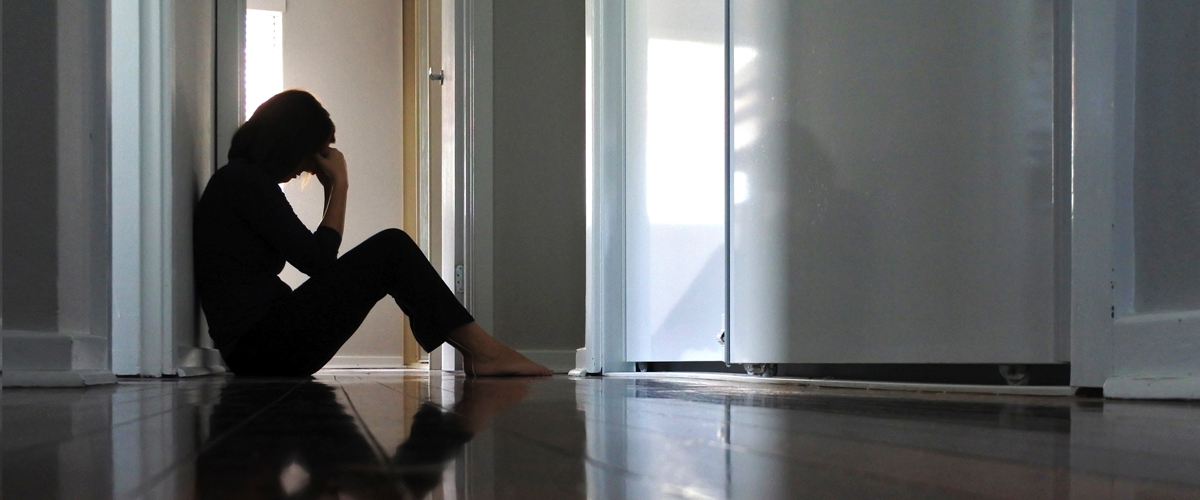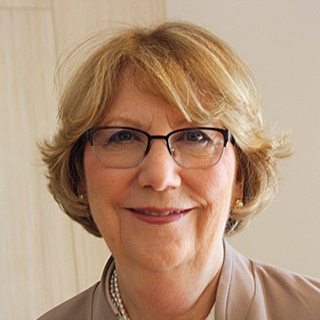How to Cope With Grief Amid COVID-19
With so many facing sudden loss, an expert offers advice on how to comfort others, as well as ways to process your own grief during a pandemic.

New York State has been hit especially hard during the COVID-19 pandemic, with over 336,000 confirmed cases, nearly 75,000 hospitalizations, and more than 27,000 deaths as of mid-May, according to the Centers for Disease Control and Prevention.
Coping with loss is difficult, but in the COVID era it’s even harder. Often, the loss of life to the coronavirus is sudden, and family members are unable to be by their loved one’s side because of restrictions designed to stop the spread of infection. The separation only adds to the grief and sadness of loved ones left behind.
Dr. M. Katherine Shear, founding director of the Center for Complicated Grief at Columbia University’s School of Social Work and the Marion E. Kenworthy Professor of Psychiatry, has spent her career studying and treating bereavement. She says one of the best ways to help a grieving person is to give them a chance to talk.
“It helps most people to just be heard when we are holding a lot of emotional pain,” says Dr. Shear. “It is difficult to talk about the pain; we need to feel connected to the person we are talking to and we need to feel emotionally safe — like they care and are interested and want to hear what we have to say.”
Dr. Shear notes it can be difficult to just listen to someone express emotional pain.
“Most people have a natural caregiving instinct that makes us want to soothe the person and take the pain away,” she says. “However, when someone is grieving the loss of someone close, we really can’t take that pain away. We can only be willing to listen and share this very human sorrow.”

Dr. M. Katherine Shear
Adding to the emotional hardship of losing a loved one to the coronavirus is the cessation of traditional rituals such as memorials, shivas, and funeral services that help survivors say goodbye. Dr. Shear says we can still comfort others by being present, demonstrating our care for the person, our willingness and interest in spending time with them, listening to what they have to say, and sharing stories of the deceased.
“A lot of our comfort is nonverbal,” she says, but this requires some kind of physical interaction. “This is what is much more difficult in the COVID era. However, [with video chats] it’s not impossible. We need to clear our minds and hearts of anger, guilt, and anxiety to the best of our ability and, from there, try to be creative in ways to be present with our bereaved friends and family as much as possible and in whatever ways we can.”
Health Matters asked Dr. Shear to share tips for those suffering the sudden loss of a loved one and coping with grief.
Know your feelings are valid. Grief is messy and a natural response to loss. There are no right or wrong ways to experience it. There are, of course, commonalities, but our response to loss is different for every person and also for each person we lose. In general, grief begins acutely with intense emotions, preoccupying thoughts, physical reactions and behaviors focused on honoring, caring for and feeling close to the bereaved. Over time, as we adapt to the loss by accepting its reality and restoring our well-being, grief is integrated and finds a place in our life.
Understand that sudden loss is shocking and difficult to comprehend. After a painful loss, it’s easy to imagine ways it didn’t have to happen. This is something almost everyone does. When a loved one dies suddenly, under difficult circumstances, as is happening with COVID-19 deaths, the tendency to get caught up in imagining all kinds of alternative scenarios is even stronger. This is called a “derailer” because it can sidetrack the adaptive healing process.
Use the tenets of the serenity prayer. You need to accept what you cannot change; this means accepting the death, but also the presence of the pandemic and its consequences. You also need courage, creativity, and fortitude to change what you can. This means finding ways to restore your well-being and to cope with the pandemic, which includes three basic components: 1) acting in ways that are consistent with important personal values or deeply held interests, 2) feeling competent to face and meet important challenges in life, and 3) having a sense of belonging and mattering in the world.
Watch out for thoughts that can derail your healing process. If they take too much space in your mind, certain kinds of natural thoughts, feelings, or behaviors can derail healing during acute grieving. These include protesting the death; self-blame, guilt, anger, or shame; imagining ways things could have gone differently; losing faith in yourself or others; excessive avoidance of reminders of the loss; and extreme social isolation.
Don’t let guilt overwhelm you. You will likely find yourself feeling survivor guilt. This is very natural, but it is something to notice and pay attention to while trying to not let it take over and guide your choices as you move forward. In other words, you need to allow yourself to have joy and satisfaction in your life again. That might take a while. Just try not to hold yourself back from having positive emotions and savoring them.
Additional Resources
If you are seeking help coping with the loss of a loved one, visit NewYork-Presbyterian’s mental health services here. You can also learn more at Columbia Psychiatry and Weill Cornell Medicine.
Learn more about how to avoid depression during the coronavirus.
M. Katherine Shear, M.D., is the founding director of the Center for Complicated Grief at the Columbia School of Social Work and the Marion E. Kenworthy Professor of Psychiatry. Dr. Shear is a clinical researcher who first worked in anxiety and depression. For the last two decades she has focused on understanding and treating people who experience persistent, intense grief. She developed and tested complicated grief therapy (CGT), a short-term targeted intervention, and confirmed its efficacy in three large studies funded by the National Institute of Mental Health. CGT is strength-based and focused on fostering adaptation to loss. Dr. Shear is widely recognized for her work in bereavement, including both research and clinical awards from the Association for Death Education and Counseling and invited authorship of articles for UpToDate and the New England Journal of Medicine.
